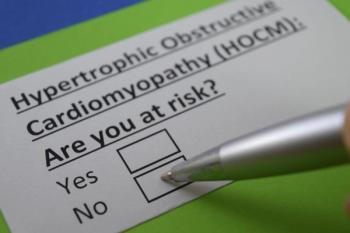
Positive Results Announced From Phase 3 Study of PCSK9 Inhibitor for HeFH
LIB Therapeutics released data from the LIBerate-HeFH trial that showed lerodalcibep achieved statistically significant placebo adjusted reductions in mean LDL-C at Week 24 and at the mean of Weeks 22 and 24.
LIB Therapeutics has announced positive results from a phase 3 long-term efficacy and safety study of lerodalcibep, the company’s investigational treatment for patients with heterozygous familial hypercholesterolemia (HeFH).1 Lerodalcibep is a small binding protein PCSK9 inhibitor being developed to overcome the limitations of current low-density lipoprotein (LDL)-lowering treatments.
Data from the LIBerate-HeFH trial (
LIBerate-HeFH was a placebo-controlled, double-blind, randomized, trial for adults with HeFH who were on stable, maximally tolerated statin therapy with or without additional oral lipid lowering therapy. The study cohort included 478 adults with a mean age of 53, of which 51.7% were female. Patients received monthly injections of either 300 mg of lerodalcibep or placebo for a 24-week treatment period.
“Heterozygous FH affects nearly 1 in 300, or over 30 million, people worldwide, causing very high LDL-cholesterol levels from birth, and if untreated or under-treated, is associated with early morbidity and mortality from cardiovascular disease,” Derick Raal, lead investigator for the LIBerate-HeFH trial, said in a release.1 “Initiation of effective LDL-C reduction is critical to achieve guideline directed goals of less than 1.4 mmol/L (55 mg/dL) in those with pre-existing CVD or at very-high risk for CVD plus at least an additional 50% reduction in LDL-C from current baseline.”
LIB Therapeutics is also currently conducting 2 additional randomized, placebo-controlled, Phase 3 pivotal trials with lerodalcibep in over 1800 patients. LIBerate-CVD (
“As always, we are most grateful to the over 500 FH patients, including the children and adolescents who participated in the HoFH trial, for their time and interest in contributing to these results,” Evan Stein, chief executive and chief scientific officer of LIB Therapeutics, said in a release.1 “We also thank the dedicated investigators and their clinic staff who kept the trials going through the covid epidemic.”
References
1. LIB Therapeutics Announces Positive Results from the Phase 3 Long-term efficacy and safety of Lerodalcibep in heterozygous familial hypercholesterolemia (LIBerate-HeFH) trial. News Release. LIB Therapeutics. August 28, 2023. Accessed august 30, 2023. https://www.libtherapeutics.com/news/lib-therapeutics-announces-positive-results-from-the-phase-3-long-term-efficacy-and-safety-of-lerodalcibep-in-heterozygous-familial-hypercholesterolemia-liberate-hefh-trial
Newsletter
Pharmacy practice is always changing. Stay ahead of the curve with the Drug Topics newsletter and get the latest drug information, industry trends, and patient care tips.























